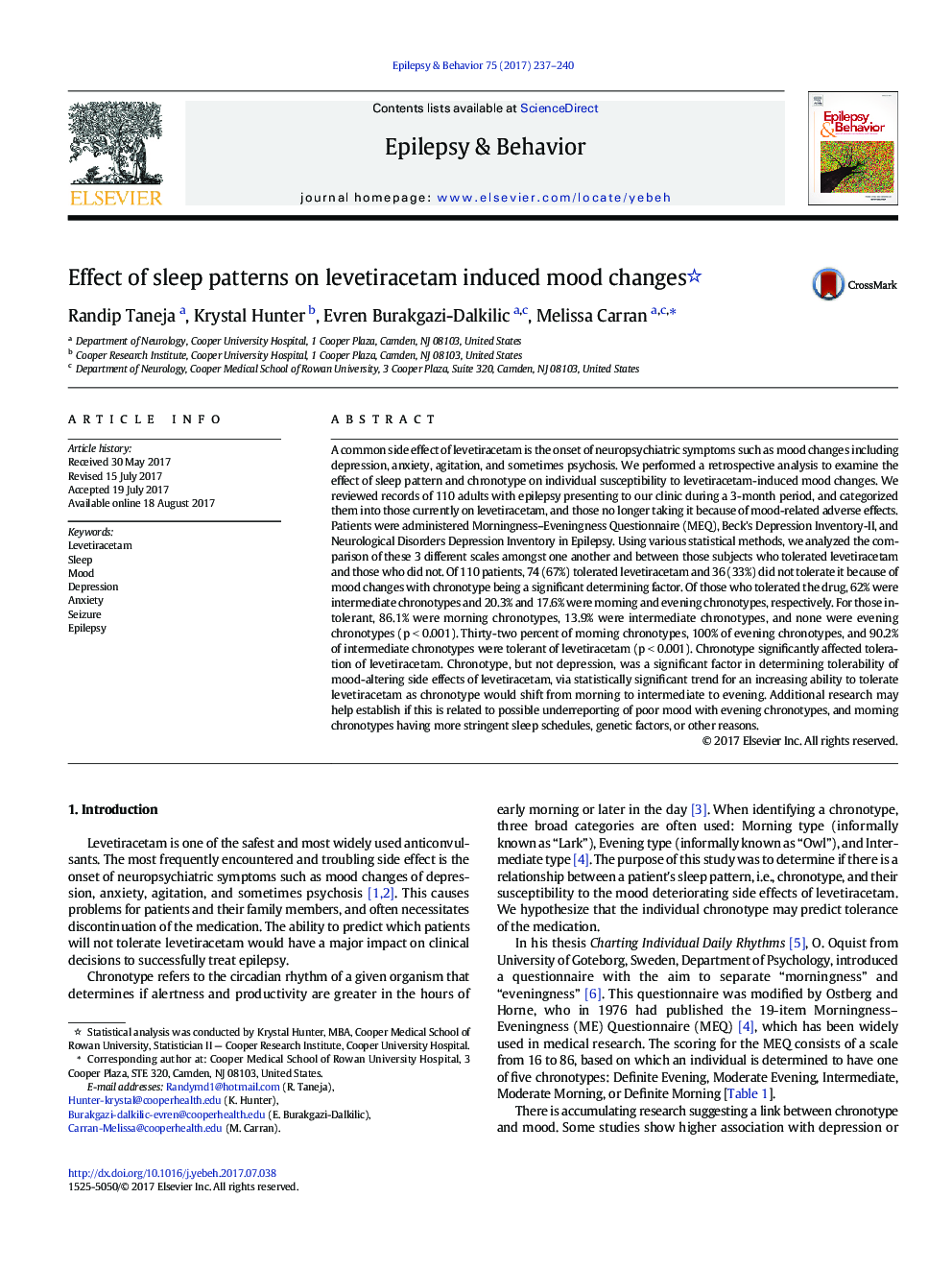| کد مقاله | کد نشریه | سال انتشار | مقاله انگلیسی | نسخه تمام متن |
|---|---|---|---|---|
| 5628168 | 1579818 | 2017 | 4 صفحه PDF | دانلود رایگان |
- Relationship between sleep pattern i.e. chronotype, and mood deteriorating side effects of levetiracetam.
- Chronotype a significant factor in toleration of levetiracetam.
- 86.1% of morning, 13.9% of intermediate, and 0% of evening chronotypes were intolerant of levetiracetam (p < 0.001).
- Strong positive relationship between BDI-II and NDDI-E score (R = 0.795, p < 0.001).
- MEQ scale a good marker prior to initiating levetiracetam.
A common side effect of levetiracetam is the onset of neuropsychiatric symptoms such as mood changes including depression, anxiety, agitation, and sometimes psychosis. We performed a retrospective analysis to examine the effect of sleep pattern and chronotype on individual susceptibility to levetiracetam-induced mood changes. We reviewed records of 110 adults with epilepsy presenting to our clinic during a 3-month period, and categorized them into those currently on levetiracetam, and those no longer taking it because of mood-related adverse effects. Patients were administered Morningness-Eveningness Questionnaire (MEQ), Beck's Depression Inventory-II, and Neurological Disorders Depression Inventory in Epilepsy. Using various statistical methods, we analyzed the comparison of these 3 different scales amongst one another and between those subjects who tolerated levetiracetam and those who did not. Of 110 patients, 74 (67%) tolerated levetiracetam and 36 (33%) did not tolerate it because of mood changes with chronotype being a significant determining factor. Of those who tolerated the drug, 62% were intermediate chronotypes and 20.3% and 17.6% were morning and evening chronotypes, respectively. For those intolerant, 86.1% were morning chronotypes, 13.9% were intermediate chronotypes, and none were evening chronotypes (p < 0.001). Thirty-two percent of morning chronotypes, 100% of evening chronotypes, and 90.2% of intermediate chronotypes were tolerant of levetiracetam (p < 0.001). Chronotype significantly affected toleration of levetiracetam. Chronotype, but not depression, was a significant factor in determining tolerability of mood-altering side effects of levetiracetam, via statistically significant trend for an increasing ability to tolerate levetiracetam as chronotype would shift from morning to intermediate to evening. Additional research may help establish if this is related to possible underreporting of poor mood with evening chronotypes, and morning chronotypes having more stringent sleep schedules, genetic factors, or other reasons.
Journal: Epilepsy & Behavior - Volume 75, October 2017, Pages 237-240
